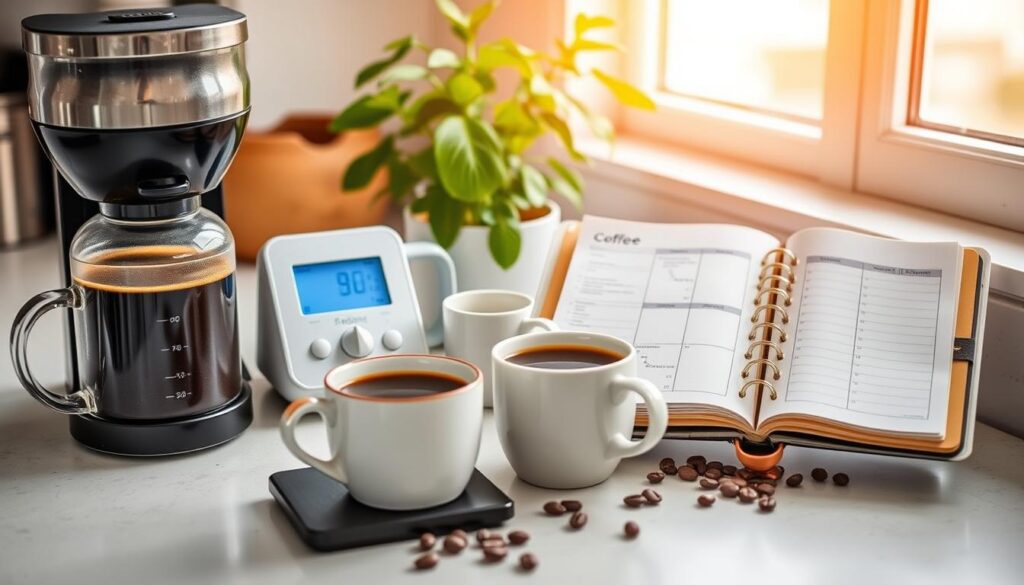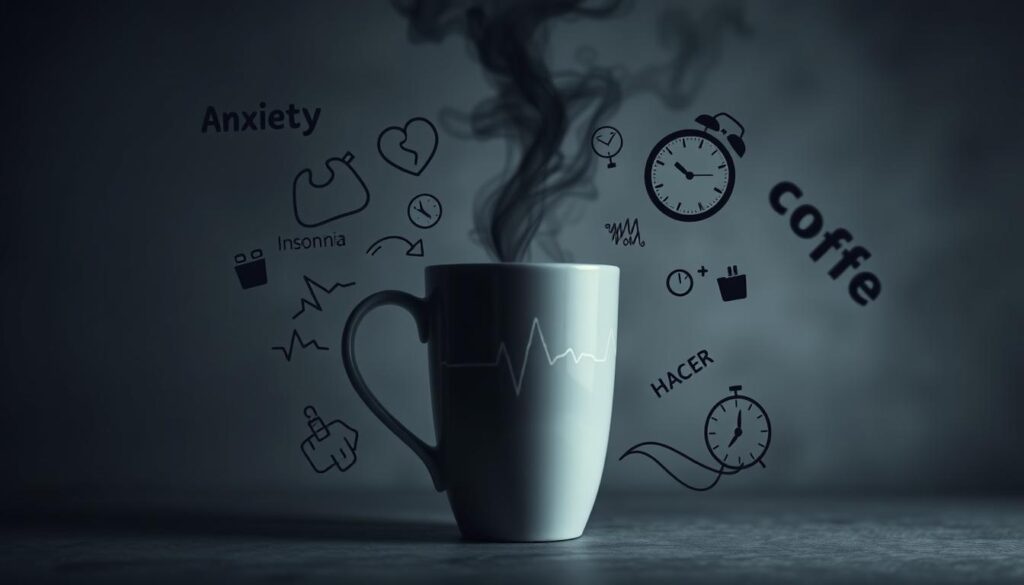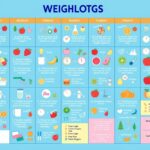How Much Coffee is Healthy to Drink Daily?,Coffee has become a big part of many people’s lives. But, how much is good for you? Knowing how much coffee is healthy is important. It can make a big difference in your health.
Table of Contents
Studies from places like the American Journal of Clinical Nutrition and Mayo Clinic say to drink in moderation. This section will help you find out how much coffee is good for you. It will make sure you enjoy coffee without harming your health.

Key Takeaways
- Moderate coffee consumption can yield significant health benefits.
- Understanding your daily coffee intake is essential for overall wellness.
- Research from respected institutions guides recommended coffee servings.
- Enjoying coffee in moderation fosters a balanced lifestyle.
- Stay informed about the health implications of your coffee habits.
The Benefits of Coffee Consumption
Coffee is more than just a morning pick-me-up. It’s packed with nutrients that boost your health. Its antioxidants make it a great addition to your diet.How Much Coffee is Healthy to Drink Daily?
Rich in Antioxidants
Coffee’s high antioxidant levels are a big plus. These antioxidants fight off free radicals that harm cells. Studies show coffee can offer more antioxidants than fruits and veggies for many people.
Boosts Physical Performance
Adding coffee to your workout routine can improve your performance. Caffeine boosts adrenaline, giving you more energy and focus. It’s a favorite among athletes looking to enhance their endurance.
May Reduce the Risk of Certain Diseases
Drinking coffee in moderation might lower the risk of some diseases. It could help prevent Parkinson’s, Alzheimer’s, and Type 2 diabetes. This makes coffee a valuable ally for long-term health.
Understanding Caffeine Content
If you love coffee, you know caffeine levels change a lot. This depends on the coffee type and how it’s made. Knowing this helps you choose the right coffee for you. The bean type and brewing method affect the caffeine, changing your coffee experience.
Variations in Caffeine Levels
Caffeine in coffee can vary a lot. Arabica beans have less caffeine than Robusta beans. An 8-ounce cup of coffee usually has about 95 mg of caffeine. But, it can be anywhere from 30 mg to over 200 mg, depending on the coffee and how it’s made.
| Coffee Type | Average Caffeine Content (mg) |
|---|---|
| Espresso (1 oz) | 63 |
| Drip Coffee (8 oz) | 95 |
| Cold Brew Coffee (8 oz) | 100-200 |
| French Press (8 oz) | 80-100 |
How Brewing Method Affects Caffeine
The way you brew your coffee changes its caffeine level. For example, espresso has more caffeine per ounce than drip coffee. But, because espresso is served in smaller amounts, it might not have as much caffeine overall. Different brewing methods extract caffeine at different rates. Cold brew, for instance, has more caffeine because it steeps for a longer time.
How Much Coffee is it Healthy to Drink on a Daily Basis?
Knowing how much coffee is good for you can help you enjoy it safely. Health groups give clear advice on coffee intake. This ensures you stay within safe limits.
Recommendations from Health Organizations
Health experts say 3 to 4 cups of coffee a day is safe for most adults. This is about 400 mg of caffeine. The U.S. Dietary Guidelines and the European Food Safety Authority agree with these daily coffee recommendations. They say it’s okay as part of a healthy diet.
Following these health guidelines for coffee consumption can boost your energy. It also helps your overall health.
Individual Factors to Consider
Your personal situation affects how much coffee you should drink. Things like age, weight, and individual caffeine tolerance matter a lot. Certain health conditions affecting coffee intake, like high blood pressure or heart problems, might mean you need to drink less.
Talking to a doctor can help you find the right amount of coffee for you. They can suggest a personalized coffee consumption plan based on your health.

Potential Risks of Excessive Coffee Consumption
Your coffee habits might have hidden risks that affect your health. While drinking coffee in moderation is good, too much can cause problems. Common issues include coffee anxiety, insomnia, and digestive problems.
Increased Heart Rate and Anxiety
Drinking too much coffee can make your heart beat faster, known as tachycardia. People who are sensitive might feel more anxious because of this. Research shows that too much caffeine can make anxiety worse, mainly for those who already have anxiety issues.
It’s important to drink coffee in moderation to avoid these negative effects.
Insomnia and Digestive Issues
Drinking caffeinated drinks at night can mess up your sleep, causing insomnia. Too much caffeine before bed can make it hard to fall asleep and affect your sleep quality. During the day, caffeine can upset your stomach, leading to discomfort and other digestive problems.
This means you should be careful about how much coffee you drink, and when you drink it.

| Effect | Details |
|---|---|
| Increased Heart Rate | Can lead to tachycardia, mainly in sensitive people. |
| Heightened Anxiety | May worsen existing anxiety disorders. |
| Sleep Disturbances | Can disrupt sleep patterns, causing insomnia. |
| Digestive Problems | May cause stomach discomfort and other digestive issues. |
How to Monitor Your Coffee Intake
It’s key to know how much coffee you drink to keep a balanced life. Tracking your coffee helps you see how much is in a cup, which is usually 8 ounces. But, many mugs are bigger, leading to drinking too much. Knowing the right amount helps you control your caffeine.
Serving Sizes: Understanding a Cup
Knowing the right coffee sizes is very important. A “cup” of coffee might mean different things to different people. Mugs in different places can hold more than 8 ounces. So, it’s good to know the right sizes to manage how much coffee you drink.
Tracking Your Daily Consumption
Use a coffee tracker to keep an eye on your caffeine. Apps like *MyFitnessPal* or *Caffeine Tracker* make it easy to log your coffee. These tools help you stay aware of your caffeine intake. This way, you can enjoy your coffee without drinking too much.

Alternatives to Regular Coffee
Thinking of trying something new instead of regular coffee? There are many options, like low caffeine coffee and other coffee alternatives. These choices can make your drink time better and help you drink less caffeine.How Much Coffee is Healthy to Drink Daily?
Types of Coffee with Lower Caffeine
Want to drink less caffeine but keep enjoying coffee’s taste? There are many choices. Decaf coffee, for example, has decaf coffee benefits and lets you enjoy coffee without the caffeine buzz. Brands like Peet’s and Starbucks offer great decaf options.
There are also coffee substitutes made from grains like roasted barley or chicory. They offer a strong flavor that meets your coffee cravings.How Much Coffee is Healthy to Drink Daily?
Herbal Teas and Other Beverages
Herbal teas are getting more popular for their health perks. Rooibos and chamomile teas are caffeine-free and full of antioxidants. Adding them to your routine can spice up your drink choices and offer benefits like better digestion and relaxation.How Much Coffee is Healthy to Drink Daily?
If you’re looking for something beyond tea, try chicory root tea. It has a great taste without any caffeine.
| Drink Type | Caffeine Content | Health Benefits |
|---|---|---|
| Decaf Coffee | 5-15 mg | May reduce anxiety, maintains antioxidants |
| Dandelion Root Coffee | 0 mg | Supports liver health, caffeine-free substitute |
| Rooibos Tea | 0 mg | Rich in antioxidants, promotes heart health |
| Chicory Root Tea | 0 mg | Aids digestion, excellent caffeine substitute |
How to Make Healthy Coffee Choices
Choosing the right ingredients is key for a healthier coffee. Being mindful of what you add can greatly affect its healthiness. Using healthy coffee ingredients boosts flavor and adds nutrition. Try coffee additives like almond milk or natural sweeteners for a tasty mix without extra calories.
Choosing the Right Ingredients
Knowing the nutritional value of your coffee is important. Here are some great options:
- Almond milk – A lower-calorie milk alternative with a nutty flavor.
- Coconut sugar – A natural sweetener with a lower glycemic index, making it healthier.
- Organic flavorings – Like cinnamon or cocoa powder, they add flavor without extra calories.
Adding these healthy coffee ingredients improves taste and health. Look into coffee health tips to find what suits you best.How Much Coffee is Healthy to Drink Daily?
Mindful Drinking Practices
Practicing mindful coffee drinking can make your experience better. Instead of drinking quickly, take your time. This way, you enjoy the flavors and aromas more. Here are some coffee enjoyment tips:
- Take a moment to appreciate the aroma before each sip.
- Drink your coffee in a quiet place, away from distractions.
- Notice the richness and texture of your coffee.
Research shows that savoring coffee can make you happier and less likely to overdrink. Mindfulness not only makes your coffee better but also more enjoyable.How Much Coffee is Healthy to Drink Daily?
By following these tips, you can turn your coffee time into a healthy and enjoyable ritual.
Conclusion
Moderation is key when it comes to coffee. Knowing your limits and sticking to daily recommendations can improve your health. Coffee can boost physical and mental performance and even lower disease risks.
But, too much coffee can be bad. It might raise your heart rate and cause sleep problems. By keeping track of how much you drink, you can enjoy coffee without harming your health.
Remember, coffee is best when part of a balanced lifestyle. Stay updated with health advice and research. This way, you can enjoy your coffee while taking care of your health.
FAQ
How much coffee is safe to drink daily?
Health groups say 3 to 4 cups of coffee a day is okay. This is about 400 mg of caffeine. But, how much you can safely drink depends on your age, weight, and health.
What are the main health benefits of coffee?
Coffee is full of antioxidants that fight free radicals. It might also boost your physical performance. Plus, it could lower the risk of Parkinson’s and Type 2 diabetes.How Much Coffee is Healthy to Drink Daily?
Does brewing method affect caffeine content?
Yes, brewing methods change caffeine levels. Espresso has more caffeine per ounce than drip coffee, but it’s in a smaller amount. Cold brew can also have more caffeine because it brews for a longer time.
What should I consider regarding my caffeine tolerance?
Your health, how sensitive you are to caffeine, and your lifestyle affect your tolerance. Always talk to a doctor for advice that fits you.
What are the possible risks of drinking too much coffee?
Too much coffee can make your heart beat faster, cause anxiety, keep you awake, and upset your stomach. Listen to your body and adjust how much you drink.How Much Coffee is Healthy to Drink Daily?
How can I effectively track my coffee consumption?
Use apps or journals to keep track of your coffee. Knowing that a standard cup is 8 ounces helps you log it right.
What are some alternatives to regular coffee?
Try decaf coffee or coffee made from grains for less caffeine. Herbal teas like rooibos or chicory root tea are tasty and caffeine-free.
How can I make healthier choices when drinking coffee?
Choose almond milk and natural sweeteners instead of unhealthy ones. Enjoy each sip mindfully. This way, you can enjoy your coffee more and drink less.How Much Coffee is Healthy to Drink Daily?










